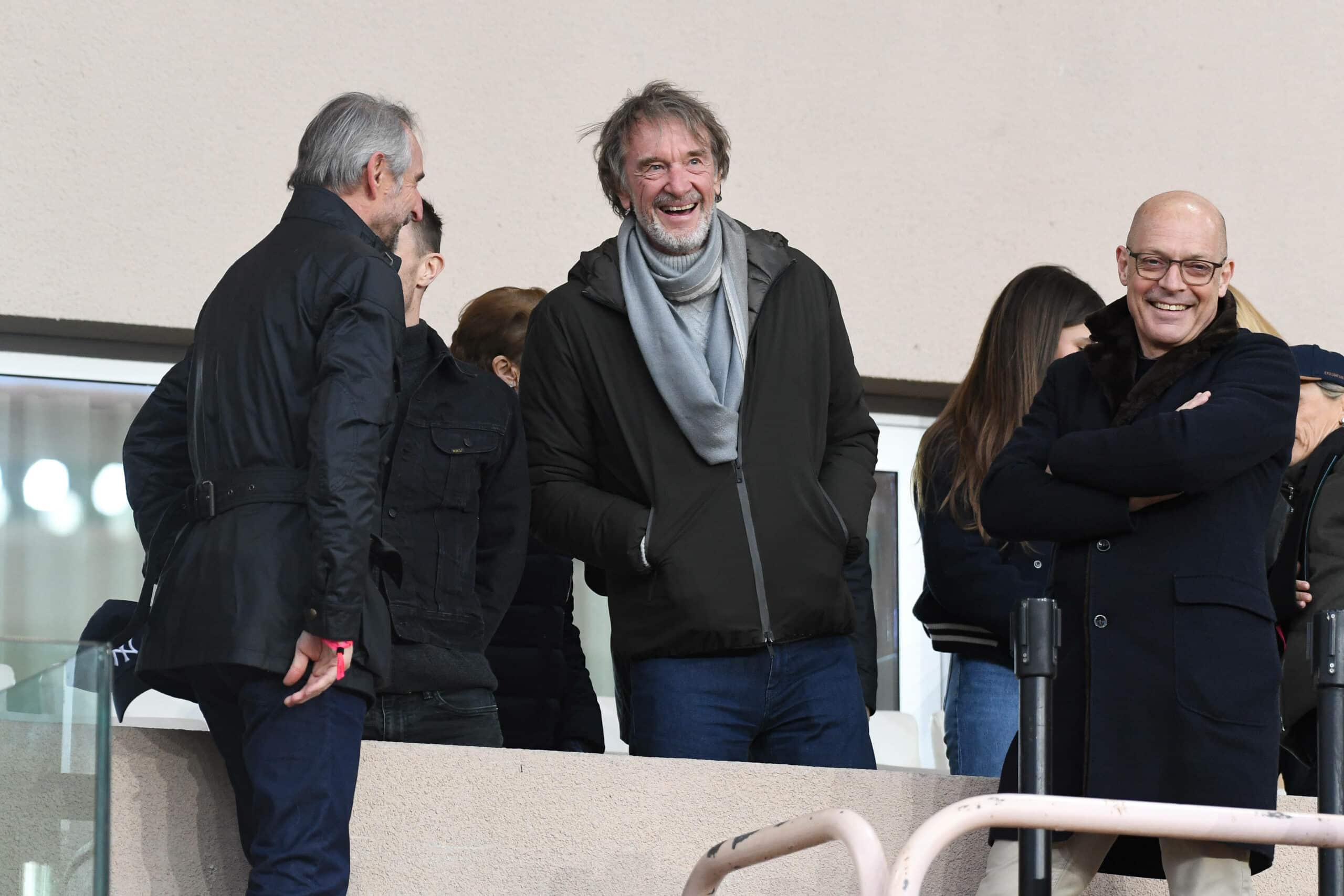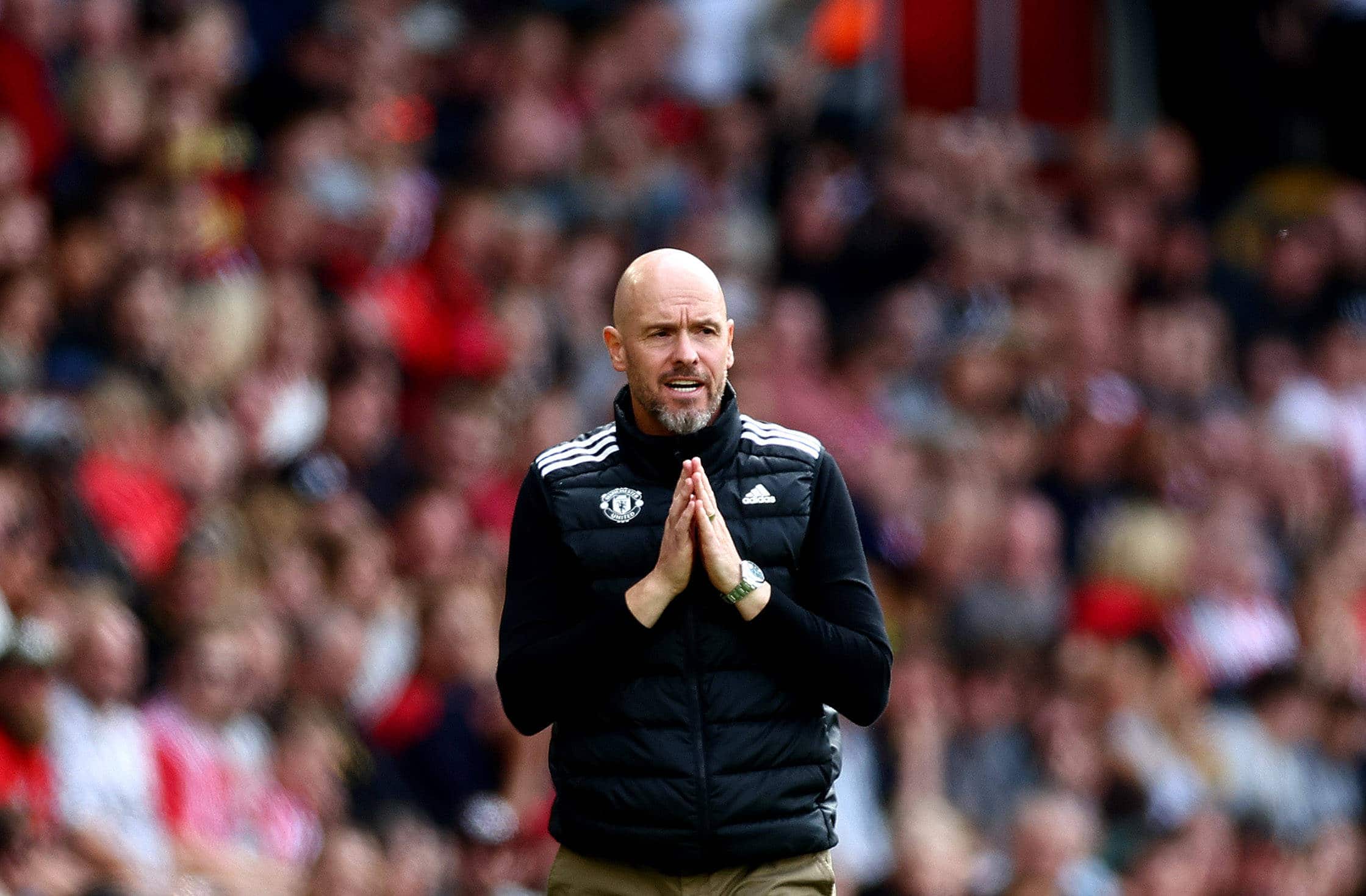Sir Jim Ratcliffe’s “Evidence-Based Process” and Erik ten Hag’s Future at Manchester United
The recent meeting between Manchester United’s hierarchy and Sir Jim Ratcliffe reveals just how precarious Erik ten Hag’s position is, with the club’s new owner pushing for a thorough, data-backed evaluation of the manager’s performance. Ratcliffe’s request for “forensic cases” on every possible scenario reflects an ambitious vision for United’s decision-making process, one that may indeed shape the direction of the club in the coming months.
But is this new approach just a shrewd business tactic, or does it hint at Ratcliffe’s broader intentions for Manchester United?
Ratcliffe’s Evidence-Based Approach: Ineos Sets the Tone
Manchester United’s meeting on Tuesday in London included co-owner Joel Glazer, CEO Omar Berrada, sporting director Dan Ashworth, technical director Jason Wilcox, and Ineos director Sir Dave Brailsford. This gathering centred around Ratcliffe’s insistence on an evidence-based approach to determining ten Hag’s future. By demanding thorough cases for every scenario, Ratcliffe is clearly implementing his Ineos ethos, which values a clinical, data-driven strategy.

As reported by Miguel Delaney in The Independent, Ratcliffe’s insistence on this process has been part of Ineos’s “vaunted ‘evidence-based process’ approach.” He wants to avoid doubt in major decisions. However, a senior United figure acknowledged that the club’s current state—languishing with only eight points from seven games—is far from unexpected, given the issues that have plagued United in recent years. Indeed, one might question if this “evidence” could have saved United from the lacklustre performances seen so far this season.
Search for Stability and Tuchel Temptation
One of the main talking points in the meeting was the debate over whether now is the right time to replace ten Hag. Reports indicate that Thomas Tuchel, currently linked to the job, was a candidate for the position in the summer. The German manager reportedly even had a preliminary meeting with Ratcliffe, although the talks fizzled out, primarily over non-football reasons.
But the temptation to bring in Tuchel—or any fresh face, for that matter—has not diminished. For many within United’s hierarchy, however, the current uncertainty poses a dilemma: change brings the risk of further instability, and replacing ten Hag too soon could throw United into even greater disarray. This desire for stability is likely one reason why Ratcliffe’s “evidence-based” review hasn’t yet resulted in ten Hag’s departure.
The Fit of Potential Replacements: Long-Term or Short-Term?
United’s challenges aren’t solely about a change in leadership; they also concern the club’s long-term strategy. As the meeting reportedly covered, the key question isn’t just about finding a replacement but determining the terms of that replacement—whether it’s a short-term or long-term solution.
Tuchel’s potential appointment speaks to this conundrum. If the club moves to a new manager, the immediate question is whether they could adjust to United’s existing squad dynamics. Miguel Delaney reports that United have even discussed “how the squad is currently more suited to four at the back than three at the back.” Given Tuchel’s preference for flexibility, he could be a viable fit, but only if United commit to a longer-term managerial plan that allows him to build the squad he wants.

Ten Hag’s Predicament: Lack of Control Over the Inevitable
Amid all this, ten Hag faces a difficult reality. Although he remains committed to his role, preparing for the Brentford match after his holiday, the rumblings within United’s boardrooms must be hard to ignore. Delaney underscores that this is the second time the Dutchman has faced the prospect of losing his job in recent months, as speculation has been swirling since the summer.
Though ten Hag’s tenure at United has been less than stellar, some within the club argue that he has been let down by factors beyond his control, such as injuries, off-field distractions, and squad imbalance. This is where Ratcliffe’s forensic approach could either work in his favour or lead to his dismissal; the evidence may reveal that some issues go deeper than managerial tactics alone.
The meeting showed clear divisions, with some arguing for ten Hag’s continued role in the name of stability, while others pressed for a fresh start. Yet, it’s evident that the decision-making process is becoming more calculated, more methodical, and—ultimately—more in line with Ratcliffe’s Ineos playbook.
Our View – EPL Index Analysis
Ratcliffe’s approach might come across as corporate theatre rather than a sign of genuine progress. This “evidence-based” framework is sensible, but at a club like United, it could feel like a clinical attempt to distance management from the on-pitch emotion that defines football. Sir Jim Ratcliffe’s background may bring business acumen, but football success isn’t always predictable through a spreadsheet.
From a fan’s perspective, Ratcliffe’s hesitation to make a bold managerial decision reflects a lack of true footballing instinct. Is Ineos’s owner waiting for metrics to indicate ten Hag’s time is up, even as United fall further down the Premier League table? And what of the potential appointment of Tuchel? This could merely signal yet another manager to try to fit into a squad built by a different philosophy.
For fans, this might feel like history repeating itself. United’s post-Ferguson era has seen five permanent managers, none of whom have truly succeeded. Ten Hag, even with his issues, offers some continuity. But will Ratcliffe’s business-first approach neglect the need for a manager who can inspire players, not just align with a corporate strategy? In the eyes of many United supporters, it’s high time for the owners to either back ten Hag fully or make a decisive change. Half measures, even when dressed as “evidence-based,” could just prolong the agony for all involved.

